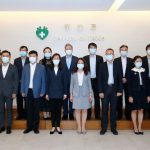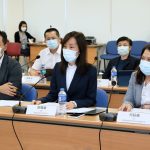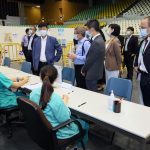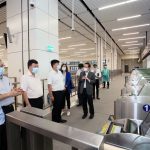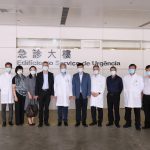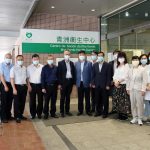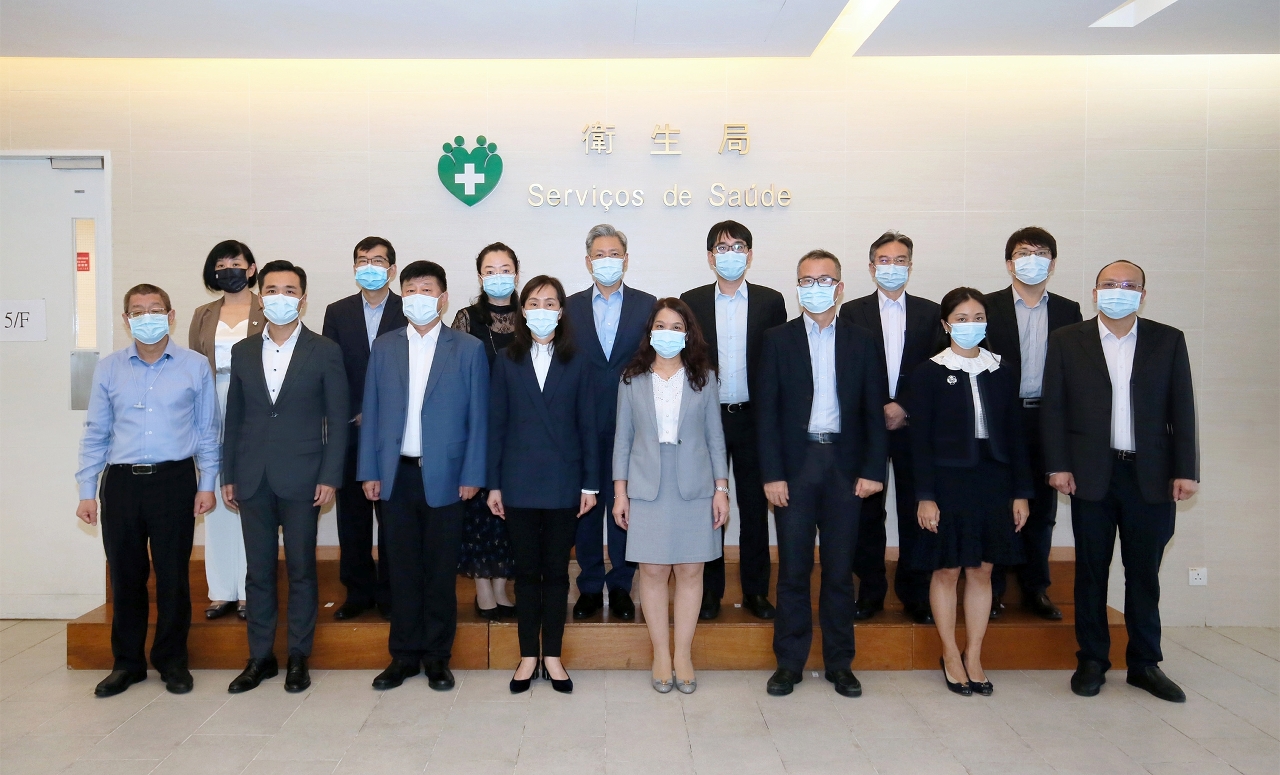 The Secretary for Social Affairs and Culture, Ms Ao Ieong U, poses for a group photograph with the expert team from China’s National Health Commission.
The Secretary for Social Affairs and Culture, Ms Ao Ieong U, poses for a group photograph with the expert team from China’s National Health Commission.
An expert team from China’s National Health Commission has affirmed Macao’s anti-epidemic effort in relation to the COVID-19 pandemic, after inspecting the city’s measures at the invitation of the Macao Special Administrative Region (MSAR) Government.
The Commission’s eight-strong team – made up of experts in prevention and control of infectious diseases; as well as in clinical treatments and laboratory testing – also shared its advice regarding optimising Macao’s overall measures against the novel coronavirus. The advice is conducive to the management of any infection that might occur in high-risk groups, and to promotion of the scientific reasons for vaccination.
While in Macao from 30 August to 2 September, the expert team visited a number of facilities, including: the Macao boundary crossing area serving the Hong Kong-Zhuhai-Macao Bridge; the command headquarters of the Novel Coronavirus Response and Coordination Centre; several hotels used for medical observation; the Conde de São Januário Hospital; public health centres; nucleic acid testing stations; and COVID-19 vaccination centres.
The expert team spoke highly of the MSAR Government’s proactive effort in combatting COVID-19, highlighting Macao’s mobilising of resources from different Government departments, and the city’s use of entry-restriction measures, medical treatment procedures, and nucleic acid testing capacity.
While in Macao, the experts had been given a number of briefings detailing Macao’s overall strategies in the fight against the COVID-19 pandemic. The briefings covered topics including: the local mechanism for epidemic prevention and control; measures for preventing any outbreak in the community; dissemination of epidemic-related information; inspection and quarantine measures at boundary crossing checkpoints; ‘closed-loop’ arrangements for centralised medical observation; and measures to disinfect inbound goods and ensure safety of staff at checkpoint crossing areas.
The briefings for the Commission experts also covered: epidemiological investigation; epidemic control and prevention at hospitals; treatment for those infected; isolation ward management; Macao’s proposal for increasing its isolation facilities; the city’s district- and risk-specific epidemic prevention management system; capacity and effort for nucleic acid testing; vaccination; the ensuring of a stable supply of everyday goods; and the local information systems supporting the local epidemic control effort.
To date, the MSAR Government has adhered to the principle of “preventing imported cases and a rebound of the epidemic”, keeping in line with the strategy adopted on the mainland.
Since the novel coronavirus alert began in 2020, the MSAR Government has liaised closely with the National Health Commission, and Macao has been given great support from the country in relation to nucleic acid testing, the sourcing of vaccines, the formulating of a proposal for the city’s district- and risk-specific epidemic prevention system, and preparation of a plan relating to constructing a portable-cabin hospital.
The visit by the expert team will reinforce Macao’s overall capacity to implement precise strategies in infection prevention and control in relation to the novel coronavirus. The MSAR Government will devote increasing effort to enhancing the city’s public health mechanisms – by making reference to advice shared by the expert team, and by consolidating the knowledge gained from the practical situation in Macao – in order to ensure the health and safety of the Macao public.


